5 Strategies for Pressured Ducks

Conventional wisdom dictates that late-season ducks are the most challenging to hunt. Nonsense, I say. The toughest time to put mallards on the strap is right now — the first quarter of the season. Many regions have not yet seen a significant push of migrators, and given the relatively mild weather, many fellow hunters are vying for local mallards and wood ducks. The ducks of late October and early November quickly grow wary of intense local pressure and become darn challenging to decoy. But with the right finesse, you’ll put educated ducks in the bag, no matter the month.
Tone Down Calling
I spent roughly eight years hunting the Potomac River on the outskirts of Washington, D.C., where blinds line the shore every 500 yards. As I listened to hunters wail on their calls, a curious observation emerged: The real ducks, pressured as they were, said very little on the water or in flight. So, one morning I pocketed my call and relied solely on my decoys — the positive result changed the way I hunt pressured ducks. I now rely on a brief 4- or 5-note greeting call and some soft quacks — or no calling at all — when the ducks are behaving nervously.
Ditch the Duck Blind
Nothing beats the comfort of a box blind or well-concealed boat, but educated ducks learn to look for their unnatural dimensions. Therefore I find natural vegetation to be an underutilized, effective hide in times of intense pressure. If you’re hunting a marsh or slough, immerse yourself in the surrounding grasses, resting on your back to reduce your profile. When targeting streams or rivers, sit back at least 10 yards in the hardwoods behind a tree or brush. Your discomfort will be alleviated as mallards pitch in, oblivious to your presence.
Adjust Your Spread
When there are migrators on the move or I’m setting up for uneducated early season ducks, visibility is my goal. If I’m hunting a beaver pond, for instance, I’ll place most of the spread in the center of the hole so ducks can spot the decoys down through the trees. However, I opt for a more natural spread for pressured birds, positioning most of my dekes closer to vegetation, with just a few toward the center of the pond as if they landed and are swimming in. The setup compromises visibility for realism, but it fares better when the birds have tasted gunfire. Point is, when hunting pressured ducks, worry less about setting a classic spread such as a J- or U-rig and focus more on positioning your decoys just as real ducks would use your chosen location.
Skirt the Pressure
Hunting pressure doesn’t have to be your adversary. If there’s a heavily gunned public area or duck club nearby, all you have to do is find a secluded spot and wait for ducks to be driven to you. It could be a small, brushy pothole on the edge of public land or a narrow, well-concealed slough on an adjoining farm — any unassuming hideaway where ducks feel safe will work. Such spots require diligent scouting and a trained eye to find, as they often don’t hold ducks throughout the season. But the search is worth it.
My aforementioned beaver pond is one such example. It holds few ducks on most days, but I’m sure to hunt it on Saturdays and holidays. When the guns starting roaring on the vast tract of adjoining state forest land, I ready my call for ducks seeking sanctuary. I also sit until at least noon, as hunters leaving the state land for lunch often stir up one last good flight.
Take the Shot
There’s nothing so beautiful as a mallard riding cupped wings in full committal, its chestnut breast exposed for an easy shot. However, unless you’re a purist, don’t hold out for such opportunities with pressured birds. If the ducks are in range on the first swing or offer a pass-shooting attempt, take it.
No, I’m not suggesting you “skybust.” A skybuster knows neither the effective range of his shotgun nor his physical limitations. He’s just slinging steel. But you’ve patterned your shotgun and know your ethical shooting distance. If a cautious, pressured duck flies within range, take advantage.
After all, despite all the careful adjustments to your strategy, educated ducks rarely make mistakes.

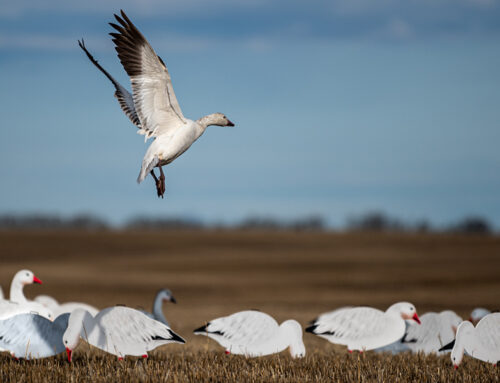
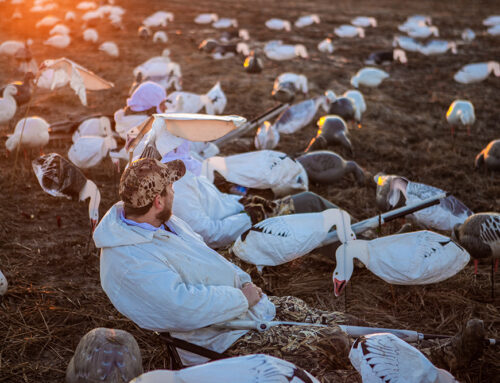
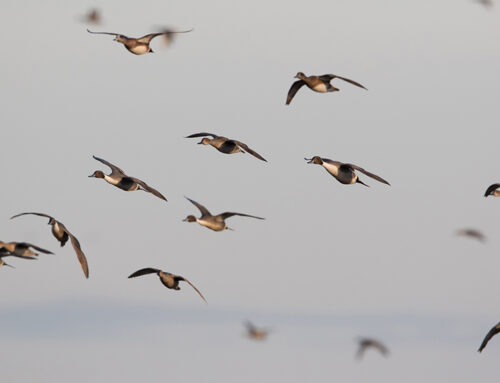
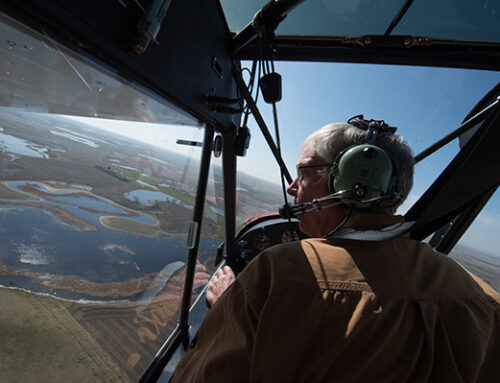
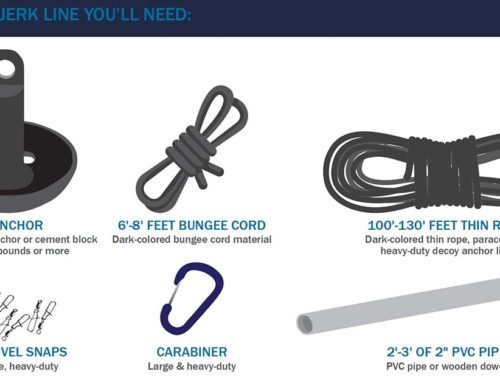
First step in hunting pressured ducks. Find some un-pressured ducks and hunt those ducks instead. 😉